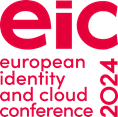 The CBOR Web Token (CWT) Claims in COSE Headers specification has been published as RFC 9597! This closes a gap for COSE relative to JOSE, adding the ability to use CWT claims in COSE header parameters, just as JWT claims can be used in JOSE header parameters.
The CBOR Web Token (CWT) Claims in COSE Headers specification has been published as RFC 9597! This closes a gap for COSE relative to JOSE, adding the ability to use CWT claims in COSE header parameters, just as JWT claims can be used in JOSE header parameters.
The specification abstract is:
This document describes how to include CBOR Web Token (CWT) claims in the header parameters of any CBOR Object Signing and Encryption (COSE) structure. This functionality helps to facilitate applications that wish to make use of CWT claims in encrypted COSE structures and/or COSE structures featuring detached signatures, while having some of those claims be available before decryption and/or without inspecting the detached payload. Another use case is using CWT claims with payloads that are not CWT Claims Sets, including payloads that are not CBOR at all.
Special thanks to my co-author Tobias Looker, who had a use case for this functionality and wrote an RFC with me defining it (his first!). It was a pleasure working with Tobias on the draft as we navigated the ins and outs of working group feedback and IETF processes. The spec was refined by the journey we took together. And as with CBOR Object Signing and Encryption (COSE) “typ” (type) Header Parameter (now RFC 9596) that immediately preceded it, I believe the CBOR and COSE ecosystems are better for it.


